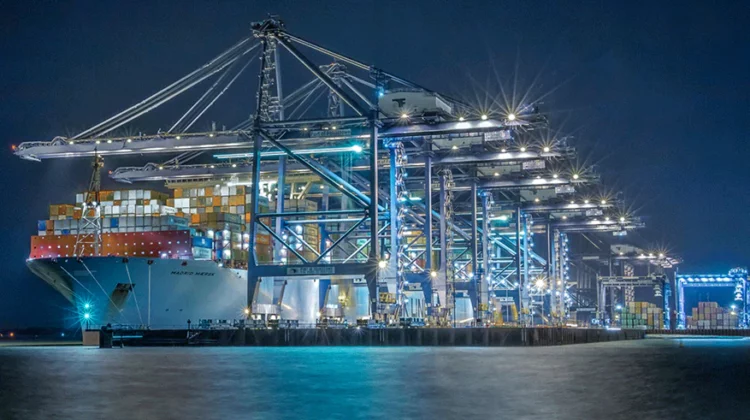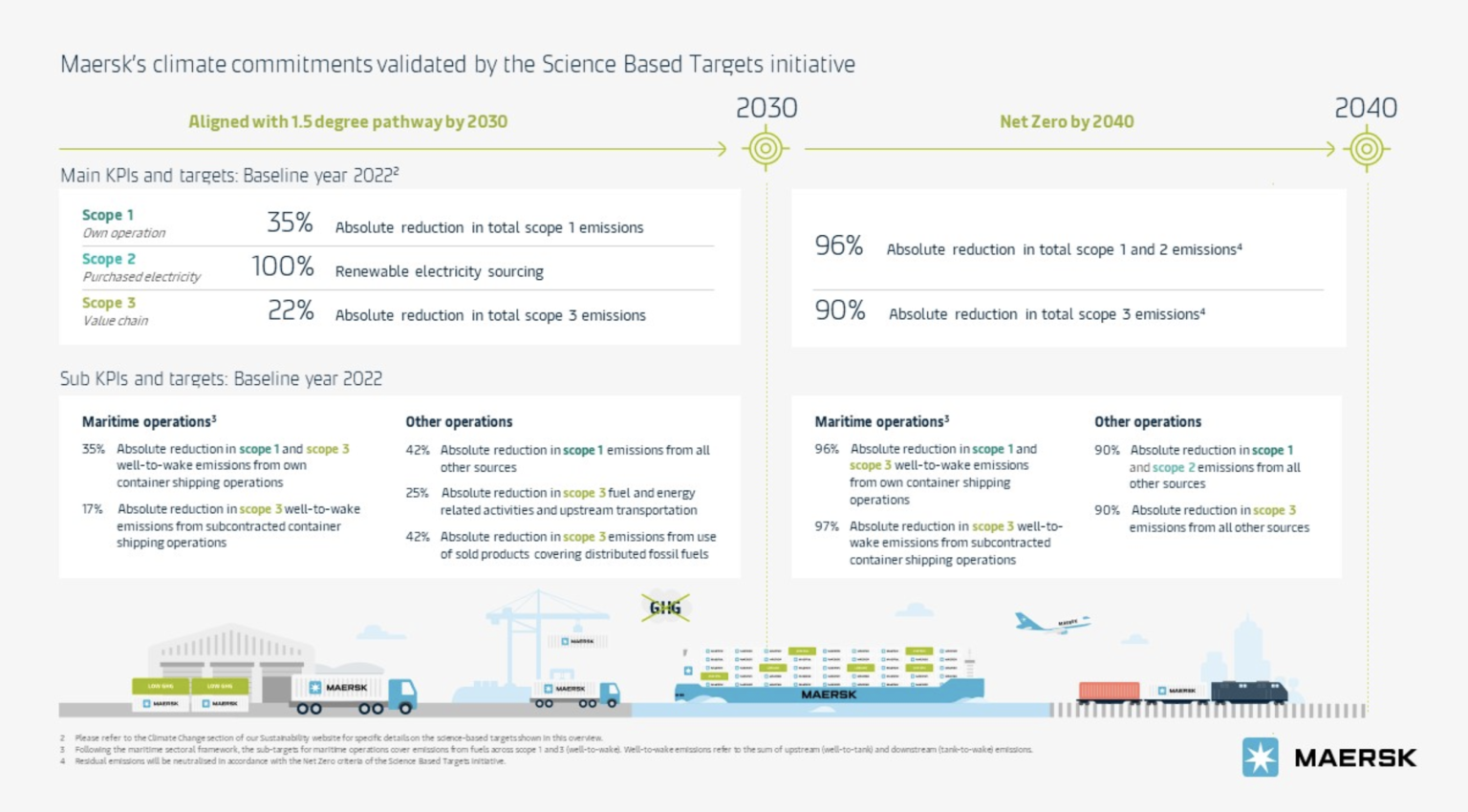
A.P. Moller-Maersk is the first to secure SBTi validation with new maritime guidance
COPENHAGEN : The greenhouse gas emissions targets set by A.P. Moller-Maersk have received validation from the Science Based Targets initiative (SBTi), aligning them with the 1.5-degree pathway outlined in the Paris Agreement.
This achievement represents a significant milestone within the maritime industry under SBTi’s recently introduced Maritime Guidance.
While maintaining its commitment to achieving Net-Zero greenhouse gas (GHG) emissions for its entire operations by 2040, with notable milestones to be reached by 2030, Maersk’s validated targets now include specific and absolute goals for reducing emissions across its operations and throughout its supply chains. These targets encompass all emissions categories, including scope 1, 2, and 3 emissions.
“At Maersk, we feel a strong responsibility to take action in the climate crisis. The Science Based Targets initiative represents the highest standard for corporate climate targets, and we are very proud to have obtained validation. We are committed to do our share to reach these targets, but we cannot do it alone. To succeed, we are dependent on and working with the ecosystem that we are part of, including customers, suppliers, industry peers and regulators. Importantly, there is a need for global regulations from the International Maritime Organization (IMO) to close the price gap between fossil and green fuels to secure a level playing field,” stated Rabab Raafat Boulos, chief operating officer of A.P. Moller-Maersk.
Since 2019, Maersk has been dedicated to aligning its climate targets with scientific principles and the guidance provided by the Science Based Targets initiative (SBTi), a widely respected voluntary framework for corporate climate goals. Following the release of SBTi’s guidelines for the maritime transport sector in late 2022, Maersk promptly submitted both short-term and long-term targets aimed at achieving absolute reductions from a 2022 baseline.
Maersk, alongside other stakeholders in the maritime sector, is actively engaged in advancing the implementation of the International Maritime Organization’s (IMO) Greenhouse Gas Strategy. Given the higher cost associated with green fuels compared to fossil fuels, establishing a regulatory framework that accelerates the energy transition within the sector and addresses the cost disparity is crucial.
In this context, Maersk, in collaboration with its industry counterparts through the World Shipping Council, will present a comprehensive proposal for a Green Balance Mechanism during IMO MEPC81. This mechanism aims to bridge the cost gap for green fuels, facilitating the sector’s transition towards net-zero emissions.
Presently, nearly 60% of Maersk’s top 200 customers have either committed to or established science-based targets, extending their efforts to include their supply chains. The implementation of a Green Balance Mechanism in shipping will not only support these customers in decarbonizing their logistics supply chains but also contribute to the industry’s collective goal of achieving net-zero emissions.
Within Maersk’s own operations, key strategies for reducing emissions include the adoption of green fuels and ongoing enhancements in fuel efficiency. Additionally, addressing emissions across the supply chain necessitates active engagement and close collaboration with suppliers.

